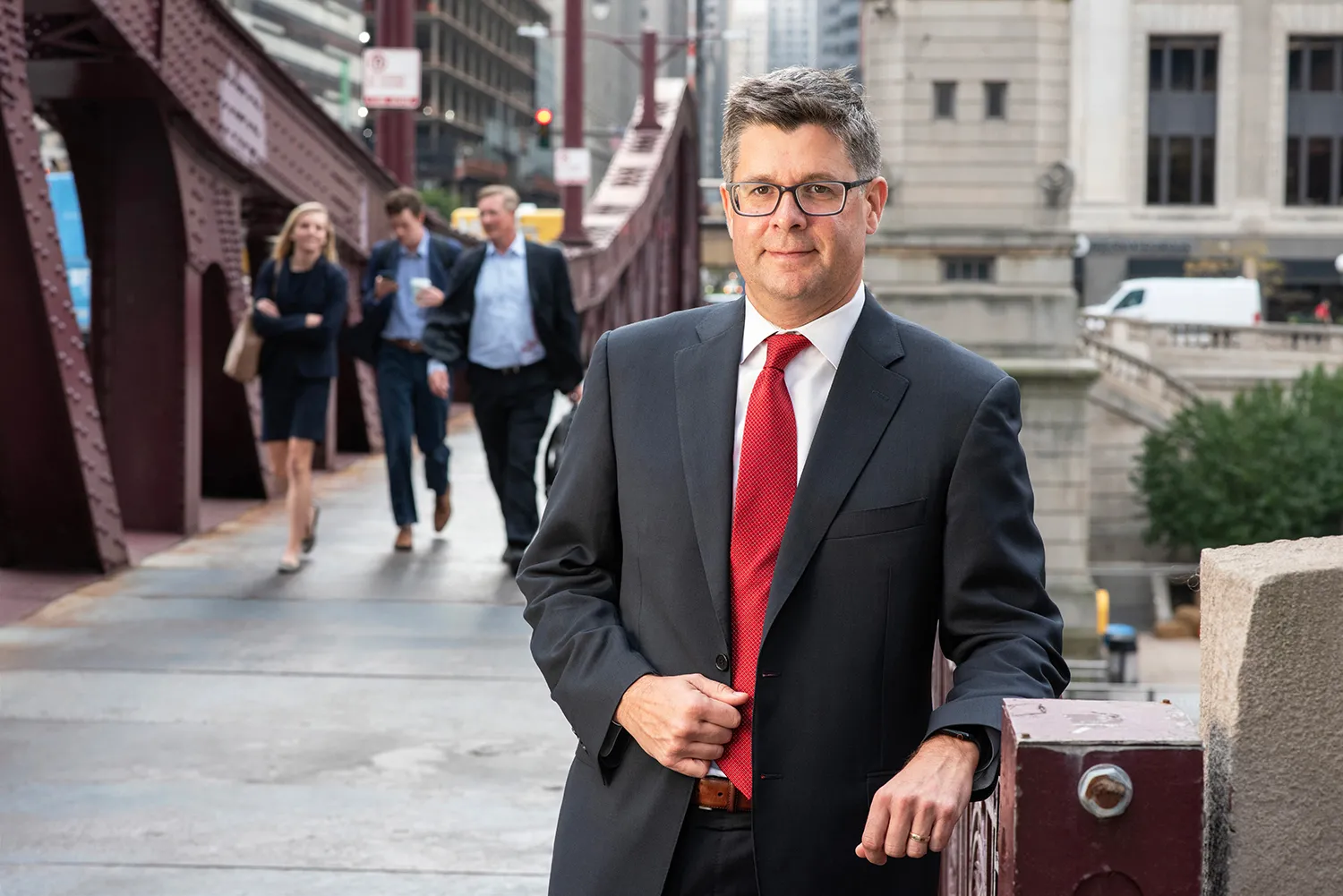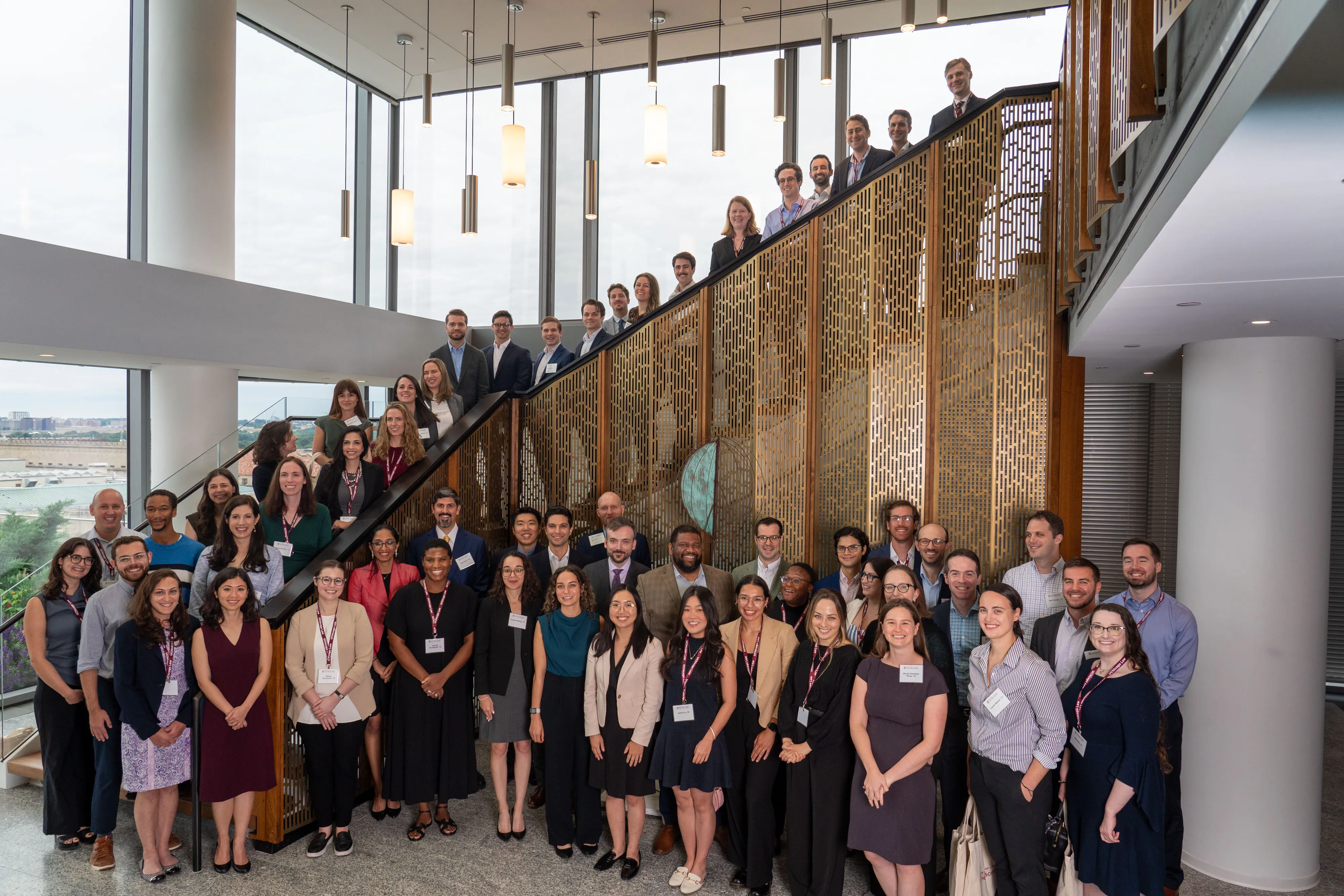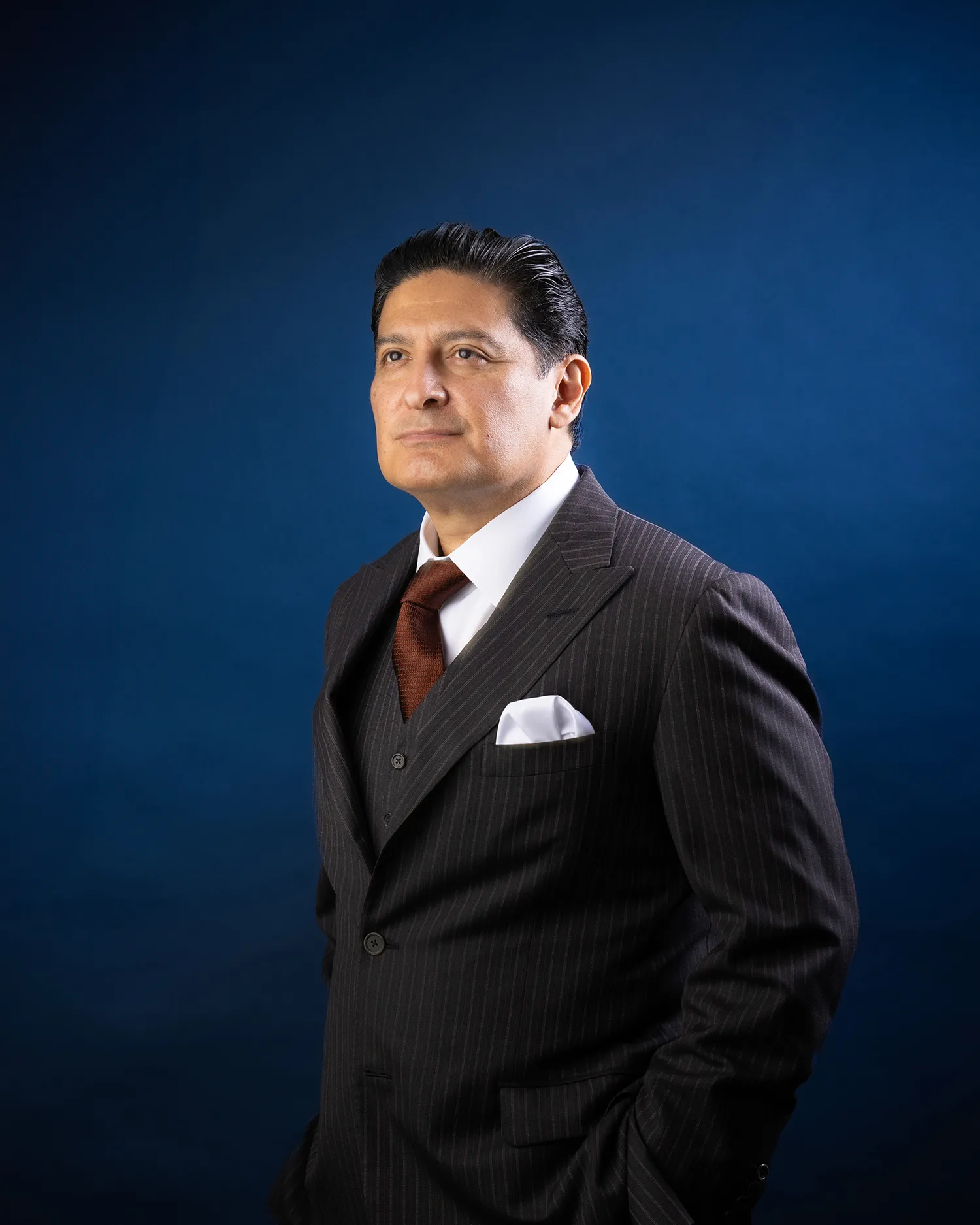Giving Back: Brent Rogers, ’05

Brent Rogers, ’05, a trial attorney at Kirkland & Ellis, originally expected to go to medical school. He studied biology and philosophy at Cornell University, taking a job at Abbott Laboratories after graduating. “I figured I’d see how it goes and apply to med school a year or two after being in the workforce,” he said.
Turns out, delaying medical school was a good idea. At Abbott, Rogers began to realize that he was more interested in the legal constructs and regulations that governed his daily work in a lab than in the work itself. That lightbulb moment led him to pivot and enroll in the Law School, where he found his experience studying law to be a “revelation.
“I felt like I was learning about how the world works in a way that I had never understood before,” he said, reflecting on his first few months as a 1L. “I never knew or appreciated just how much of the law is part of our lives and in everything we do, from business to science and so much more.”
Rogers recalled an Elements of the Law class with Professor David A. Strauss in which Strauss used a book on how scientific revolutions happen—a book Rogers knew from his undergraduate studies—as a basis for a discussion on how common law develops. He recalled another moment with (now retired) Professor Frank H. Easterbrook, when, in discussing statutory interpretation, Easterbrook referenced a book on Wittgenstein that Rogers once again knew from studying philosophy, a book on the meaning of shared language.
As someone who had never had a particular interest in the law before, he remembered being fascinated by how the study of law pulled many different academic disciplines together.
“The Law School was such a formative experience in my life,” Rogers said. “I think that’s why I’ve stayed engaged as an alum and why I give back—both as a thank you because I appreciate all the Law School has done for me, but also because I want to help ensure that students today get the same quality education and experience that I got.”
Rogers, who has been giving to the Law School for many years, enjoys finding different ways to support the community and stay connected. Serving on the class of 2005 reunion committee, he helped coordinate the celebrations for his class’s 20th reunion this spring. He has also volunteered at Moot Court several times, always impressed, he said, by the students and judges. “I think it’s really important to help the next generation of litigators get their feet under them,” he said.
After graduating from the Law School, Rogers clerked on the Ninth Circuit Court of Appeals in California before returning to Chicago to work at Kirkland & Ellis. Over the last eighteen years, he has built a successful career as a litigator, gravitating to areas of the law that make use of his scientific background, including toxic tort and product liability cases. He also does a lot of trial work, which is his favorite part about being a litigator.
“As litigators, we sometimes get too ensconced in our own thinking about a case that you can easily forget that at the end of the day, your job is to persuade a jury or judge that your side is correct,” he said. “You have to start thinking about a case not like a lawyer, but like a juror or a judge. What are the facts and themes that are going to resonate with a lay jury? Those may not be the same facts or themes that would resonate with a group of lawyers sitting around a conference room. So, I like that aspect of trial, where you have to break down complex issues in a way that a jury or judge will be able to internalize easily.”
Rogers, who has done a fair amount of recruiting for his firm, sees a difference in the way the Law School prepares students to apply and analyze the law compared to how other law schools do it.
“A lot of learning about the law is kind of esoteric in a way, but the University of Chicago Law School has an element to it that is very practical and very real-world based,” he said. “I still use principles of bankruptcy law that I learned in Douglas Baird’s bankruptcy class, all these years later.”


